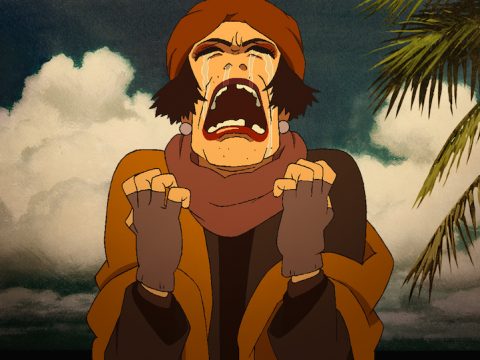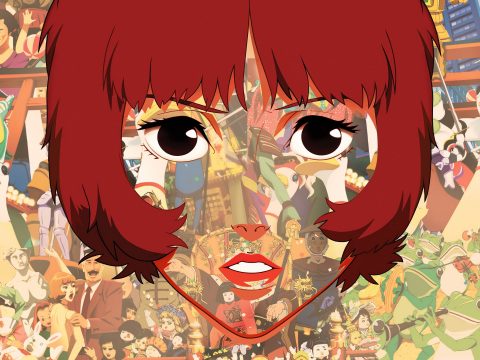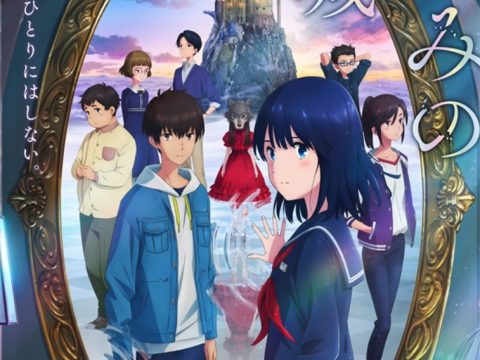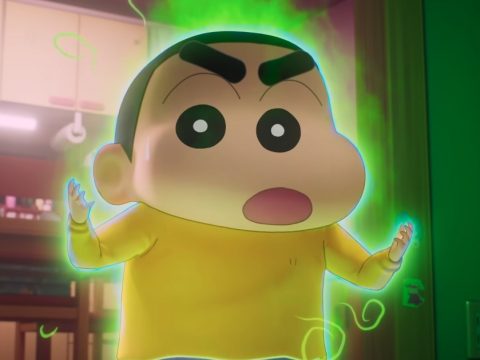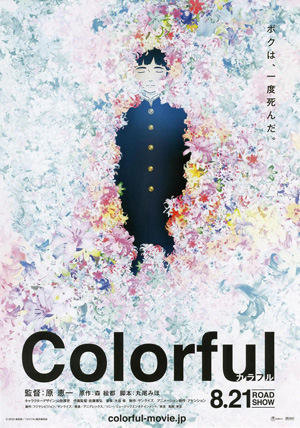 “Congratulations! You’ve won our lottery! You may be one who died with a great sin, BUT, we’re going to give you a second chance, you lucky soul!”
“Congratulations! You’ve won our lottery! You may be one who died with a great sin, BUT, we’re going to give you a second chance, you lucky soul!”
Thus begins Colorful, a new film based on an award-winning 1999 novel and directed by Keiichi Hara, who cut his teeth on a slew of Crayon Shin-chan movies but rose to wider critical acclaim in Japan with 2007’s Summer Days with Coo. A cornucopia of nostalgic teenage angst, social criticism, and a searing sense of empathy, it is a strange, wonderful poem of a film.
As a story, it is remarkably simple. Our protagonist is a soul who—known as simply “Boku” (“I”) for the majority of the story—has been given his second chance in the body of a 14 year-old suicide victim named Makoto Kobayashi (Coo veteran Kazoto Tomizawa). Having no memories of who he once was or who he has become, “Boku” has but one objective before he can be fully reborn—discover what his sin in life was.
Guiding him in this task is a capricious spirit named Purapura (voiced by half-American child talent Michael), who provides our amnesiac soul information about his new “host family” when he isn’t head-butting him. They first seem nice enough—the dad is busy and the brother aloof, but mom is cooking delicious meals and everyone seems to get along. “How could anyone want to kill themselves with such a nice family?” our hero wonders. It turns out that young Makoto was a gifted painter driven to the brink after years of bullying, perpetual loneliness and, that traumatizer of hormones, discovering the pretty girl at school being checked into the local love hotel with an older man… followed by his own mother being escorted out of it.
Reconciling the hidden moral ambiguity of humanity with its outward pleasantness drives “Boku” into adolescence all over again at warp speed. He wavers between chipper and moody—at first overjoyed to be with such a loving family, the two-facedness of his unfaithful mother puts him into a bitter emotional and physical isolation. At school, he bounces between being eager to “fix” the problems he sees around him, to indifference to people who he doesn’t even know.
It sounds like a formula for repetition but Hara deals with the shifts in such a way that we’re not taken along for his ride but merely observing it, avoiding the shallow me-me-me navel-gazing common in teen-centric films, let alone anime. In fact, the performances he elicits out of 12-year-old Michael and 15-year-old Tomizawa as the two leads is astounding; they emote with a remarkable degree of nuance for such young performers. In particular, Tomizawa’s frustration with life and girls should ring true for anyone who went through high school.
The result of the authentic acting and the clash between the carefree days of youth and the realities of the adult world remind of The Wonder Years where the self-centered foolishness of middle schoolers is shown for the pettiness it is by the bigger picture. Thus, while “Boku” is quick to judge (and re-judge) those around him, Hara’s direction refrains from doing so, preferring to show the vulnerability that leads these people in their paths and leaving it to the audience to figure out what to make of it all.
If Summer Days with Coo allowed Hara to break out of the Shin-Chan ghetto, then Colorful is the one that will make people eager to see what else he has coming. Hara’s depiction of the Tokyo suburb where our heroes live is painted in exacting detail, yet the undersaturated watercolor quality gives the modern day setting an air of nostalgia.
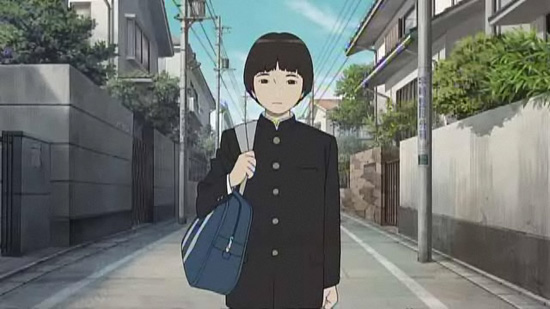
Adding to the sense of days-gone-by is the sound design—save for a handful of piano and guitar pieces, the film is largely reliant on the surrounding world to provide emotional undercurrents: distant trains rumble during a silent family dinner; and the school corridors echo with the chorus club practicing an Angela Aki song. The austere reliance on non-diegetic sound, lingering, purposefully plain compositions and straight-cutting editing evoke Ozu more than any contemporary anime production this side of Serial Experiments Lain.
Alas, despite comparisons to one of Japan’s film masters, Colorful is not without a few blemishes on its canvas. As seems woefully common for too many recent original anime movies, there is a tendency to over-indulge. While perhaps not as excessive as the three-hour running time of The Disappearance of Haruhi Suzumiya, the final act starts to drag, even for a movie as deliberately paced as this one. Most of the fault lies with Hara deciding to underscore much of what was left open to interpretation or merely alluded to up to the denouement, not least of which is the title, a lyrical metaphor that would have gone best without direct explanation. These are relatively minor quibbles, but they stick out in a work that builds itself on understatement and insinuation.
With the recent passing of Satoshi Kon still heavy in the fandom, an anime such as this about life, afterlife and second chances leads to inevitable comparisons. To answer the question—no, this isn’t quite up to those lofty standards, but it gets damn close and it’s reassuring to see another voice coming out of the void of TV show adaptations. Colorful may not be Millennium Actress, but it’s Tokyo Godfathers and that still merits amazement coming from a director most associated with naked primary schoolers.




